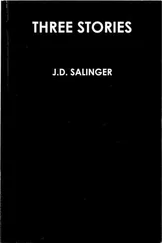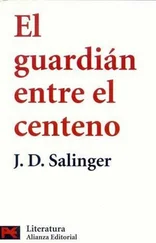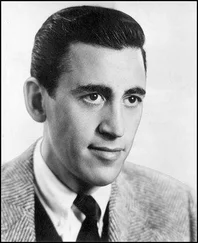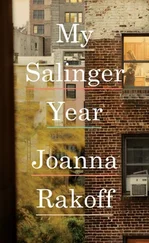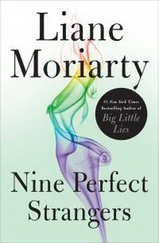J. Salinger - Nine Stories
Здесь есть возможность читать онлайн «J. Salinger - Nine Stories» весь текст электронной книги совершенно бесплатно (целиком полную версию без сокращений). В некоторых случаях можно слушать аудио, скачать через торрент в формате fb2 и присутствует краткое содержание. Жанр: Старинная литература, на английском языке. Описание произведения, (предисловие) а так же отзывы посетителей доступны на портале библиотеки ЛибКат.
- Название:Nine Stories
- Автор:
- Жанр:
- Год:неизвестен
- ISBN:нет данных
- Рейтинг книги:3 / 5. Голосов: 2
-
Избранное:Добавить в избранное
- Отзывы:
-
Ваша оценка:
- 60
- 1
- 2
- 3
- 4
- 5
Nine Stories: краткое содержание, описание и аннотация
Предлагаем к чтению аннотацию, описание, краткое содержание или предисловие (зависит от того, что написал сам автор книги «Nine Stories»). Если вы не нашли необходимую информацию о книге — напишите в комментариях, мы постараемся отыскать её.
Nine Stories — читать онлайн бесплатно полную книгу (весь текст) целиком
Ниже представлен текст книги, разбитый по страницам. Система сохранения места последней прочитанной страницы, позволяет с удобством читать онлайн бесплатно книгу «Nine Stories», без необходимости каждый раз заново искать на чём Вы остановились. Поставьте закладку, и сможете в любой момент перейти на страницу, на которой закончили чтение.
Интервал:
Закладка:
Introduce him to every theatrical producer in New York. Haul his filthy shirts back and forth from the laundry. And on top of it all--" The young man broke off. "And the result of all my kindness and decency," he went on, "is that he walks out of the house at five or six in the morning--without so much as leaving a note behind--taking with him anything and everything he can lay his filthy, dirty hands on." He paused to drag on his cigarette, and exhaled the smoke in a thin, sibilant stream from his mouth. "I don't want to talk about it. I really don't." He looked over at Ginnie. "I love your coat," he said, already out of his chair. He crossed over and took the lapel of Ginnie's polo coat between his fingers. "It's lovely. It's the first really good camel's hair I've seen since the war. May I ask where you got it?"
"My mother brought it back from Nassau."
The young man nodded thoughtfully and backed off toward his chair.
"It's one of the few places where you can get really good camel's hair." He sat down. "Was she there long?"
"What?" said Ginnie.
"Was your mother there long? The reason I ask is my mother was down in December. And part of January. Usually I go down with her, but this has been such a messy year I simply couldn't get away."
"She was down in February," Ginnie said.
"Grand. Where did she stay? Do you know?"
"With my aunt."
He nodded. "May I ask your name? You're a friend of Franklin's sister, I take it?"
"We're in the same class," Ginnie said, answering only his second question.
"You're not the famous Maxine that Selena talks about, are you?"
"No," Ginnie said.
The young man suddenly began brushing the cuffs of his trousers with the flat of his hand. "I am dog hairs from head to foot," he said.
"Mother went to Washington over the weekend and parked her beast in my apartment. It's really quite sweet. But such nasty habits. Do you have a dog?"
"No."
"Actually, I think it's cruel to keep them in the city." He stopped brushing, sat back, and looked at his wristwatch again. "I have never known that boy to be on time. We're going to see Cocteau's 'Beauty and the Beast' and it's the one film where you really should get there on time. I mean if you don't, the whole charm of it is gone. Have you seen it?"
"No."
"Oh, you must! I've seen it eight times. It's absolutely pure genius," he said. "I've been trying to get Franklin to see it for months." He shook his head hopelessly. "His taste. During the war, we both worked at the same horrible place, and that boy would insist on dragging me to the most impossible pictures in the world. We saw gangster pictures, Western pictures, musicals--"
"Did you work in the airplane factory, too?" Ginnie asked.
"God, yes. For years and years and years. Let's not talk about it, please."
"You have a bad heart, too?"
"Heavens, no. Knock wood." He rapped the arm of his chair twice. "I have the constitution of--"
As Selena entered the room, Ginnie stood up quickly and went to meet her halfway. Selena had changed from her shorts to a dress, a fact that ordinarily would have annoyed Ginnie.
"I'm sorry to've kept you waiting," Selena said insincerely, "but I had to wait for Mother to wake up.... Hello, Eric."
"Hello, hello!"
"I don't want the money anyway," Ginnie said, keeping her voice down so that she was heard only by Selena.
"What?"
"I've been thinking. I mean you bring the tennis balls and all, all the time. I forgot about that."
"But you said that because I didn't have to pay for them--"
"Walk me to the door," Ginnie said, leading the way, without saying goodbye to Eric.
"But I thought you said you were going to the movies tonight and you needed the money and all!" Selena said in the foyer.
"I'm too tired," Ginnie said. She bent over and picked up her tennis paraphernalia. "Listen. I'll give you a ring after dinner. Are you doing anything special tonight? Maybe I can come over."
Selena stared and said, "O.K."
Ginnie opened the front door and walked to the elevator. She rang the bell. "I met your brother," she said.
"You did? Isn't he a character?"
"What's he do, anyway?" Ginnie asked casually. "Does he work or something?"
"He just quit. Daddy wants him to go back to college, but he won't go."
"Why won't he?"
"I don't know. He says he's too old and all."
"How old is he?"
"I don't know. Twenty-four."
The elevator doors opened. "I'll call you laterl" Ginnie said.
Outside the building, she started to walk west to Lexington to catch the bus. Between Third and Lexington, she reached into her coat pocket for her purse and found the sandwich half. She took it out and started to bring her arm down, to drop the sandwich into the street, but instead she put it back into her pocket. A few years before, it had taken her three days to dispose of the Easter chick she had found dead on the sawdust in the bottom of her wastebasket.
----------------
The Laughing Man
----------------
IN 1928, when I was nine, I belonged, with maximum esprit de corps, to an organization known as the Comanche Club. Every schoolday afternoon at three o'clock, twenty-five of us Comanches were picked up by our Chief outside the boys' exit of P. S. 165, on 109th Street near Amsterdam Avenue. We then pushed and punched our way into the Chief's reconverted commercial bus, and he drove us (according to his financial arrangement with our parents) over to Central Park. The rest of the afternoon, weather permitting, we played football or soccer or baseball, depending (very loosely) on the season. Rainy afternoons, the Chief invariably took us either to the Museum of Natural History or to the Metropolitan Museum of Art.
Saturdays and most national holidays, the Chief picked us up early in the morning at our various apartment houses and, in his condemned-looking bus, drove us out of Manhattan into the comparatively wide open spaces of Van Cortlandt Park or the Palisades. If we had straight athletics on our minds, we went to Van Cortlandt, where the playing fields were regulation size and where the opposing team didn't include a baby carriage or an irate old lady with a cane. If our Comanche hearts were set on camping, we went over to the Palisades and roughed it. (I remember getting lost one Saturday somewhere on that tricky stretch of terrain between the Linit sign and the site of the western end of the George Washington Bridge. I kept my head, though. I just sat down in the majestic shadow of a giant billboard and, however tearfully, opened my lunchbox for business, semi-confident that the Chief would find me. The Chief always found us.)
In his hours of liberation from the Comanches, the Chief was John Gedsudski, of Staten Island. He was an extremely shy, gentle young man of twenty-two or -three, a law student at N.Y.U., and altogether a very memorable person. I won't attempt to assemble his many achievements and virtues here. Just in passing, he was an Eagle Scout, an almost-All-America tackle of 1926, and it was known that he had been most cordially invited to try out for the New York Giants' baseball team. He was an impartial and unexcitable umpire at all our bedlam sporting events, a master fire builder and extinguisher, and an expert, uncontemptuous first-aid man. Every one of us, from the smallest hoodlum to the biggest, loved and respected him.
The Chief's physical appearance in 1928 is still clear in my mind. If wishes were inches, all of us Comanches would have had him a giant in no time. The way things go, though, he was a stocky five three or four--no more than that. His hair was blue-black, his hair-line extremely low, his nose was large and fleshy, and his torso was just about as long as his legs were. In his leather windbreaker, his shoulders were powerful, but narrow and sloping. At the time, however, it seemed to me that in the Chief all the most photogenic features of Buck Jones, Ken Maynard, and Tom Mix had been smoothly amalgamated.
Читать дальшеИнтервал:
Закладка:
Похожие книги на «Nine Stories»
Представляем Вашему вниманию похожие книги на «Nine Stories» списком для выбора. Мы отобрали схожую по названию и смыслу литературу в надежде предоставить читателям больше вариантов отыскать новые, интересные, ещё непрочитанные произведения.
Обсуждение, отзывы о книге «Nine Stories» и просто собственные мнения читателей. Оставьте ваши комментарии, напишите, что Вы думаете о произведении, его смысле или главных героях. Укажите что конкретно понравилось, а что нет, и почему Вы так считаете.


